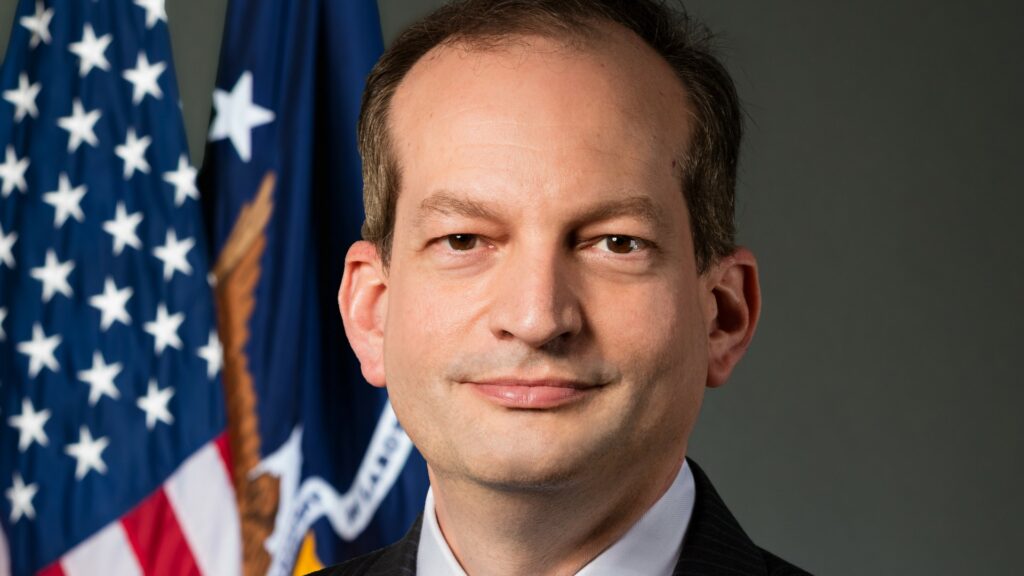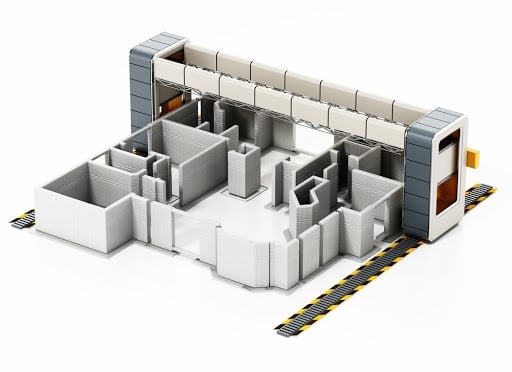Reporting on location from Denver, Co. — Closing the 44th annual meeting of the American Legislative Exchange Council (ALEC), Trump's Secretary of Labor Alexander Acosta impressed that his labor department is focused on being business friendly in its regulation and rulemaking.
Acosta addressed the free-market leaning group of state lawmakers from across the country with this sentiment, characterizing his work to align the Labor Department back into the ideological stand points of the right-wing presidency and executive branch.
Acosta's address covered a variety of issues. The topic of occupational licensing reform was the main focus. He elaborated on a variety of cases in which state-mandated occupational licensing went too far. One of the most notable examples in the address is when Acosta joked about the state of Maryland's requirements for fortune tellers to get licensed to operate.
In a more intimate press briefing, Acosta addressed local and media outlets including Capitalism.com, explaining that one of his more immediate focuses, as with the administration's, is the creation of an apprenticeship program intended to help alleviate skilled workforce shortage for a variety of industries.
WATCH: Kristin Tate Explains Skilled Labor Shortage
Acosta has wanted to make the U.S. Department of Labor an agency that works well with industry to accomplish job creation and overall economic growth. According to Bloomberg BNA, throughout his first several months as secretary, Acosta has met with a variety of stakeholders to apparently gauge feedback on labor law reforms under the Trump administration.
Many of these groups, according to Acosta's calendar—obtained by BNA through means of a Freedom of Information Act request—include CEO groups, labor unions like the AFL-CIO, and trade groups.
Denver is the location for the 44th annual ALEC meeting; however, the event will overlap with this year’s Western Conservative Summit, hosted by Colorado Christian University’s Centennial Institute.
Acosta was not the only Trump official present at the ALEC meeting. U.S. Secretary of Education Betsy DeVos spoke the day before on how to leverage tax reform and school choice to be the key to revitalizing American entrepreneurship, among other topics. Reportedly, Secretary of Interior Ryan Zinke made a private appearance at the ALEC meeting. However, Zinke also is in Denver to speak at the Western Conservative Summit on environmental issues.
Listen to the audio above for Acosta's responses to our questions. Full transcript below.
Acosta: Apprenticeships are so important. Students are going to college because they want skills so that they will get a job. Higher education is unfortunately forgetting that. So one, higher education should focus on demand-driven education that leads to a job. But secondly, states like Colorado and others should also focus on apprenticeship programs where you can earn while you learn. Under our national initiative, we are looking to create portable credentials within apprenticeship programs, so an individual that does an apprenticeship here in Colorado can use those same skills and that same credential in Utah or in Wyoming or in Nevada, and vice versa.
McGrady: Mr. Secretary, do you think you can maybe elaborate a little more on what type of apprenticeship models you're thinking of? I know there are several commentaries that point to apprenticeship models, say, in Europe. Would you say that those are models that The United States government, potentially states as well, can go from? I know Governor Hickenlooper here in Colorado has discussed something similar in his goodwill missions to Europe. I just was wondering if you could maybe elaborate a little more.
Acosta: I have visited apprenticeships in Germany and talked to job creators in Germany. I've talked with individuals from Switzerland. But I think those are the right models for Germany and for Switzerland and for the other nations of Europe. I think here in America we need to create our own model of apprenticeships. We can learn from Europe, but we need to create an American model of apprenticeships, and that model looks like this: individuals should have the opportunity to take an apprenticeship or go to college, depending on what their preference is. Focus on the individual's preference.
Within college, colleges should offer the opportunity for students to participate in apprenticeships. I knew one student when I was Dean at a law school that wanted to be a police officer, so that student majored in Criminal Justice. Well, today that individual's not a police officer because they went to school. They spent money on tuition. They graduated, but they didn't have Police Academy training. There is no reason that a university cannot incorporate Police Academy training as optional credits within a Criminal Justice degree. So you can have apprenticeships outside of higher education. You can have apprenticeships within higher education.
The key word here is choice. What does the student want to do? And choice that isn't biased, choice that doesn't tell him or her one job is more dignified than the other, because every job here is important and should have dignity. It all depends what the individual wants to do.
McGrady: From the apprenticeship and really ever since you took office, what can you ensure in the future as well that the agency will do to be more business friendly to allow for job providers, job creators, to be flexible and create jobs so people can get jobs? What would you say? What are the future plans, if you are allowed to elaborate on those?
Acosta: Well, this apprenticeship program really is focused on the skills that the workplace is demanding. So we're working with businesses, with unions, with labor management organizations and trade associations, and we're saying, "We in government are not running these apprenticeship programs, you are." So set them up. Decide what it is that you need. The trade association knows what its trade requires.
The building trades are a great example. The building trades invest nearly $1 billion of private sector money every year in training carpenters and welders and construction workers in the trade. They do this because they want a skilled workforce. They do this because they know that employees' safety comes from good training. Now, the government doesn't do this. The trades do it themselves because they, more than we, know what is important. So our hope is to build on that model and expand that model across the economy, where industry itself is teaching the skills that they know they will demand, and that as those skills change, industry will adapt because it is in their interest to adapt.
Stay tuned for more on-location coverage of the 44th Annual ALEC Meeting and the 2017 Western Conservative Summit.
MORE POLICY COVERAGE ON CAPITALISM.COM:
• Trump Takes Action on Trade: Pulls US Out of TPP, To Renegotiate NAFTA
• With Airbnb Success, Trump’s Cuba Policy Should Be Commerce, Trade
• Trump Permits Oil Pipelines, Critics Question the Art of His Deal











